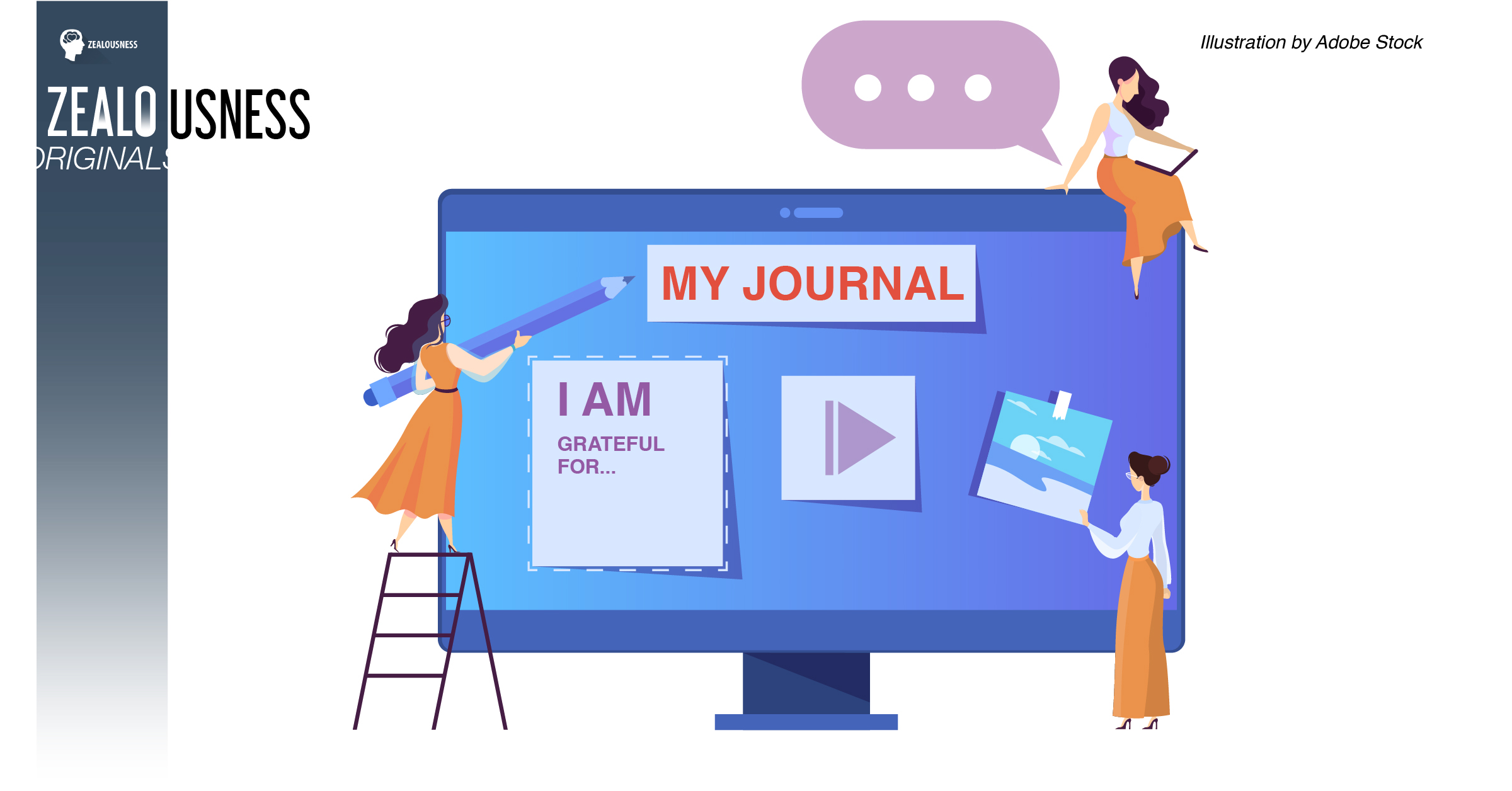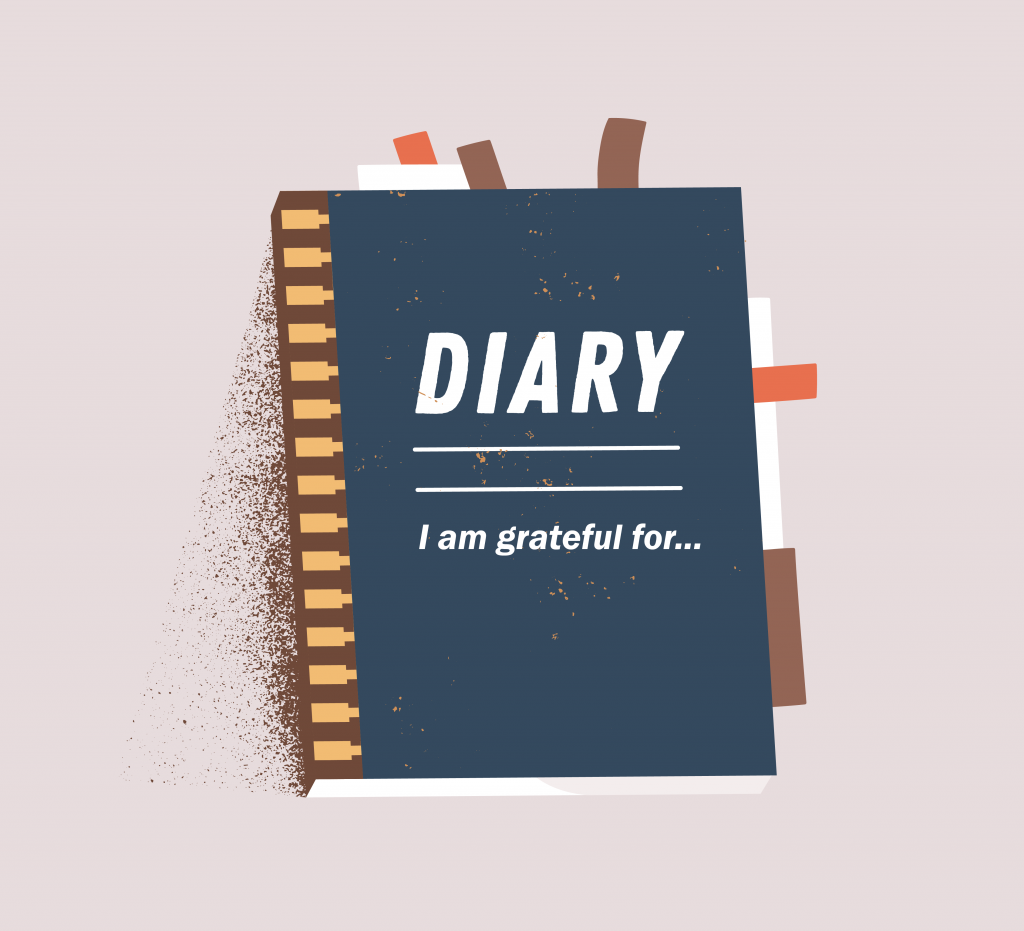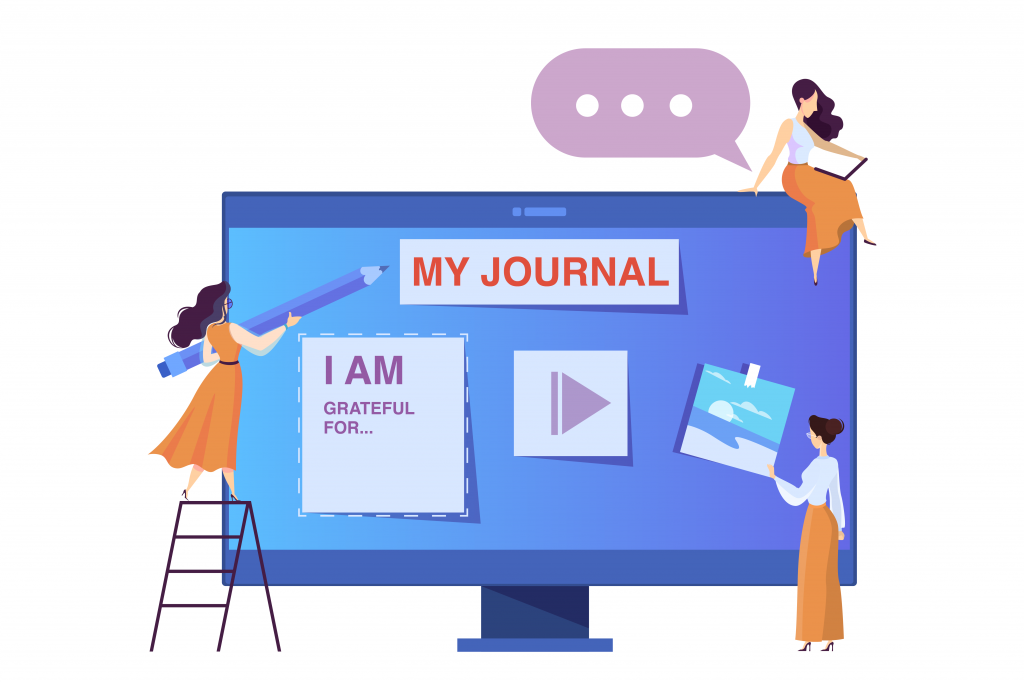I guess that I must have seemed somewhat blue before my most recent birthday. Maybe it was my age (older) or maybe I was just feeling the ongoing suffering brought on by the (hopefully now under control) pandemic. Either way, my daughter gave me a gratitude journal. The author of my journal promised that if I take one minute each day to write down three to five things for which I am grateful, I will “store positive energy, gain clarity in [my] life, and have greater control of [my] thoughts and emotions.”1 Pretty good return for a one-minute-a-day investment!
In fact, for ages, the wise among us have held gratitude up as a virtue that provides people with meaning and joy. Everyone from ancient Roman philosophers (“Gratitude is not only the greatest of virtues but the parent of all others” – Cicero) to modern country musicians (“When I started counting my blessings, my whole life turned around.” – Willie Nelson) has extolled the power of gratitude. Even Piglet, of Winnie-the-Pooh fame, observed that “…even though he had a Very Small Heart, it could hold a rather large amount of Gratitude.”
Although a crowd of wise people (and pigs), as well as journal authors, asserted that I should begin jotting down my blessings right away, I was hesitant. Thinking about it, it seemed obvious that feelings of gratitude could improve my well-being. Gratitude brings our attention to the positive aspects of our lives in the present (e.g., I am grateful for this computer monitor; I am grateful for the ability to type this article), as well as the past (I am grateful to have known my grandparents). Gratitude fosters positive sociability (e.g., I am grateful to the checkout person for doing a great job packing my groceries and I take the time to thank them). Finally, gratitude can link us to a world beyond ourselves, (I am grateful for the spring leaves budding on the trees) and to the divine (e.g., I am grateful to a Higher Power for granting me life). Indeed, all of the world’s largest religions have a place for gratitude. So, the gratitude journal seemed like a slam-dunk, right? I decided to investigate.
While philosophers and religions may have, for centuries, had the critical intuition that gratitude was an important virtue, it wasn’t until the early 2000s that gratitude received substantial scientific treatment as a psychological construct. An early area of study was examining the role of gratitude in people’s lives – was the intuition correct – was a grateful person a happier person? It turns out that, yes, gratitude is correlated with a host of positive qualities. The more grateful the person, the more likely that person is to show indicators of well-being, including positive emotion, life satisfaction, more compassion for the self, and greater relationship connection and satisfaction.2
So, researchers were able to describe a grateful person, but could they make a person grateful? Or, more specifically, could people be made more grateful and thereby happier? In 2003, psychologists Robert Emmons and Michael McCullough published what is probably the most often cited gratitude research.3 It provides the first experimental assessment of whether practicing gratitude can increase well-being. Researchers asked participants to write “up to five things in your life that you are grateful or thankful for” either on a weekly or daily basis. This was the entire intervention. So simple! So brief! Was my gratitude journal author correct? Since this study really got the gratitude ball rolling, let’s take a closer look.
Three experiments were conducted. In each, one group of participants made journal entries of gratitude while another group(s) made entries that were neutral, negative (list hassles that occurred), or in one case, potentially positive (list ways you are better off than others). Gratitude journal writing seemed to make an impact. People in these groups tended to experience more positivity – more positive affect, a more positive outlook for the next week, and a more positive sense of social interaction.
There were a few glitches. Participants in the gratitude group reported no more positive affect than those comparing themselves to others. Some health benefits were observed for some groups but not others. The participants were not representative of the general population, they were primarily college students. (One group was composed of individuals with neuromuscular disease.) There were also questions that crept into my mind: Are there types of people for whom keeping a gratitude journal would not work at all or perhaps, work better? Could the differences that were observed in the study become permanent changes? How long would they last? What about running out of ideas – do journal keepers ever get bored or find that they have nothing to add? Then what happens?
I know that this critical study was published in 2003 and it’s been 18 years since then, so I’m sure others must have replicated and extended the results. That is, someone must have done it again and someone must have figured out the answers to my questions. That’s science, right? I decided to look further.
I began searching for more recent articles assessing gratitude interventions. In my brief search, I discovered that the field had really blown up. I found research examining whether gratitude might improve a number of conditions, including depression, anxiety, post-traumatic stress disorder (PTSD), cyberbullying, and cardiovascular health. Researchers also sought to determine the potential benefits of gratitude for different sorts of people, including, elderly people, parents of troubled children, teenagers who were self-injuring, and health-care workers. Wow! There was also a significant group of studies that examined education gratitude interventions: could gratitude be taught to school-age children and thereby improve young lives?
Overwhelmed by the number of gratitude studies, I gratefully turned to what researchers call meta-analysis. A meta-analysis is a study of studies. Researchers aggregate the results of as many quality studies as they can find, in order to generate more powerful conclusions about a particular scientific question. For example, do gratitude interventions work? Here’s what I found.
In a 2016 review of 26 research articles, authors examined the effect of gratitude interventions on levels of gratitude, anxiety, and well-being.4 They concluded that, “results provide weak evidence for the efficacy of gratitude interventions”. A more recent analysis included a total of 64 experimental studies and produced similar findings: mixed or no effects on well-being or anxiety; no observed benefits for physical health (e.g., lowering blood pressure) or symptoms of mental health disorders (e.g., PTSD). 5 There were, however, small positive effects of gratitude interventions on some aspects well-being. A third analysis, published this year (2021), examined the effect of gratitude interventions on symptoms of anxiety and depression only. The conclusion? “Considered altogether, our analyses suggest gratitude interventions are of limited efficacy for reducing [anxiety and depression] symptoms.”6 These authors went so far as to suggest that the placebo effect might be the best explanation for any positive findings. Finally, Dickens’s 2019 chapter’s title tells it all: Gratitude Interventions: Meta-analytic Support for Numerous Personal Benefits, with Caveats.7 The caveats are that the benefits of a gratitude practice are either very small or non-existent and not more effective than other positive psychology interventions. Further, the authors point out that it is still unclear whether gratitude journaling is effective with different groups of people (e.g., those with differing psychological profiles8; individuals with non-European backgrounds9).
Ouch. So maybe it works and when it does, it works just a little bit. What about with children who may be more malleable? Despite some positive results in recent studies, a 2016 meta-analysis of 20 gratitude interventions implemented in schools concluded that interventions had small effects on some variables, but overall were “generally ineffective in raising student’s well-being.”10 So, pretty similar to the research on adults.
So, what do I conclude? Should I throw away my daughter’s birthday gift or write in it every night? …..I choose to write in it, but I won’t be buying expensive journals as gifts and I won’t expect too much of this one evening activity. Why write? Journaling is a low-risk, low-cost activity. It’s pretty easy to do (one minute a day, remember?) and most people tend to enjoy doing it. The research has shown that there is, at least, a chance for small benefits. Try it out, if it works for you, great. If it doesn’t, stop. If nothing else, you may at least experience one good minute or two during the day!
Second, studies of gratitude interventions have been relatively short-term, with the majority lasting less than a couple of months11. This means that researchers haven’t really explored the possibility that long-term gratitude practices may make a difference. So, it may be that while writing in a journal for a few weeks only produces the kind of smaller effects that we’ve seen, it is still possible that after an extended period of time, this practice may produce larger effects and increase well-being in a more substantial way. Again, I’m willing to put in a little time over a longer time to see what happens. (Of course, it is also possible that there may be gratitude “burn out,” we’ll see.)
Third, gratitude may be effective as one piece of a larger package. If I’m involved in a larger effort aimed at well-being, gratitude may contribute. For example, members of worship communities are drawn together, in part, by their shared gratitude. Members of addiction support groups often teach an “attitude of gratitude” as one principle in their programs. Patients could journal as an adjunct to their regular therapeutic treatment. Broader education programs aimed at social and emotional learning might also include gratitude journaling as one, among many, activities to enhance student’s social interactions and well-being.
A pandemic-oriented note: there are those who believe that so long as you are breathing you have reason to be grateful, even in the most extreme circumstances. Viktor Frankl survived the Nazi concentration camps, in part, because he regularly found reasons for gratitude.12 Yet, for others, it may seem that there are no reasons to be grateful. Their lives are difficult and perhaps show no hope of improvement. I do not suggest that finding reasons to be grateful or that feeling grateful will be easy for everyone. Nor do I hold up gratitude as a magical panacea to all of life’s challenges. Respect to people everywhere who are struggling and don’t find a gratitude journal appealing.
For me, I know that I am grateful for being able to do this gratitude research and I am grateful to my daughter for the journal that got me started. I am grateful to still believe the Thai Buddhist teacher who said, “Let us rise up and be thankful, for if we didn’t learn a lot today, at least we learned a little, and if we didn’t learn a little, at least we didn’t get sick, and if we got sick, at least we didn’t die; so, let us all be thankful.”13
References
- Nathan, Brenda. The one-minute gratitude journal. Middletown, DE: New Harbinger, 2015.
- Cregg, David R. and Jennifer Cheavens. “Gratitude Interventions: Effective Self-Help? A Meta-Analysis of the Impact on Symptoms of Depression and Anxiety.” Journal of Happiness Studies 22, (2021): 413-445. https://doi.org/10.1007/s10902-020-00236-6.
- Emmons, Robert A. and Michael E. McCullough. “Counting blessings versus burdens: An experimental investigation of gratitude and subjective well-being in daily life.” Journal of Personality and Social Psychology 84, (2003): 377-389
- Davis, Don E. and Elise Choe, Joel Meyers, Nathaniel Wade, Kristen Varjas, Allison Gifford, Amy Quinn, Joshua N. Hook, Daryl R. Van Tongeren, Brandon J. Griffin, et al. “Thankful for the little things: A meta-analysis of gratitude interventions.” Journal of Counseling Psychology 63, (2016): 20-31. http://dx.doi.10.1037/cou0000107
- Jans-Beken, Lilian and Nele Jacobs, Mayke Janssens, Sanne Peeters, Jennifer Reijnders, Lilian Lechner, and Johan Lataster. “Gratitude and health: An updated review.” Journal of Positive Psychology, (2019). http/DOI: 10.1080/17439760.2019.1651888
- Cregg and Cheavens, “Gratitude Interventions.”
- Dickens, Leah R. “Gratitude interventions: Meta-analytic support for numerous personal benefits, with caveats” In: Llewellyn E. Van Zyl L. and Sebastiaan Rothmann Sr. (eds) Positive Psychological Intervention Design and Protocols for Multi-Cultural Contexts. (Springer, Cham., 2019), 127-147. https://doi.org/10.1007/978-3-030-20020-6_6
- Davis, et al., “Thankful for the little things.”; Jans-Beken, et al., “Gratitude and health.”
- Corona, Karina, Nicole Senft, Belinda Campos, Chuansheng Chen, Michelle Shioto, and Yulia E. Chentsova-Dutton. “Ethnic variation in gratitude and well-being.” Emotion. (2020), 518-524. https://doi: 10.1037/emo0000582.
- Renshaw, Tyler L. and Rachel M. Olinger Steeves. “What good is gratitude in youth and schools? A systematic review and meta-analysis of correlates and intervention outcomes.” Psychology in the Schools, 53, (2016), 286-305. https://DOI: 10.1002/pits.21903
- Jans-Beken, et al., “Gratitude and health.”
- Viktor E. Frankl, Man’s search for meaning. (New York: Washington Square Press, 1988).
- Buscaglia, L. Born for love: Reflections on loving. (New York: Fawcett Books, 1993), p. 102.



















3 thoughts on “Grateful for gratitude?”
This piece of writing is really a good one it assists new
net people, who are wishing for blogging.
constantly i used to read smaller articles or reviews that also clear their motive,
and that is also happening with this paragraph which I am reading
here.
I constantly spent my half an hour to read this weblog’s articles every day along with a mug of coffee.